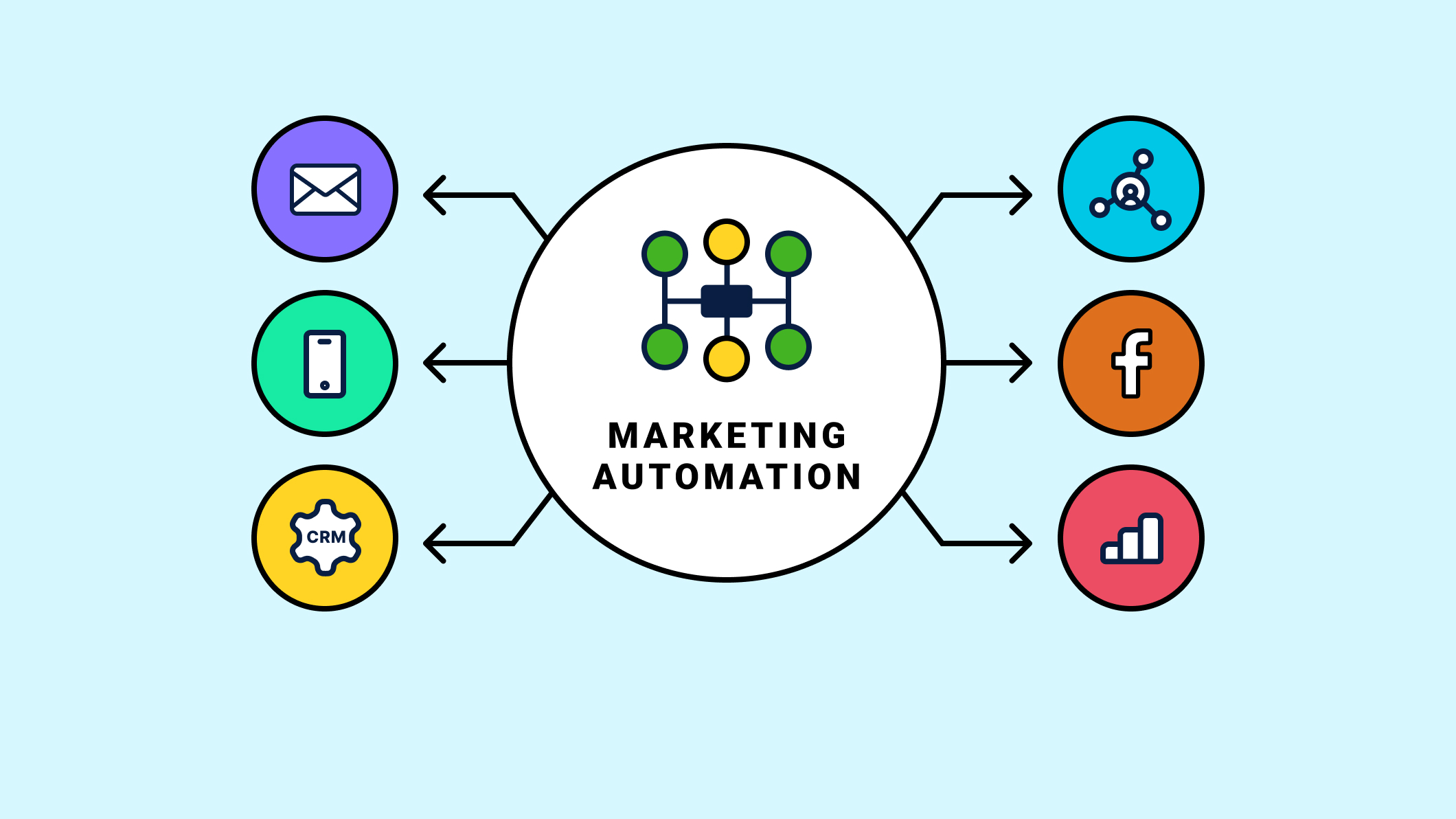By automating repetitive tasks such as email campaigns, social media posting, and lead nurturing, businesses can focus on more strategic activities that deliver a better return on investment (ROI).
For industries like recruitment, property, insurance, and e-commerce in the UK, marketing automation offers tailored solutions that address their unique needs and challenges.
Marketing Automation in Recruitment
The recruitment industry in the UK is highly competitive, with businesses striving to attract top talent while maintaining a high level of candidate engagement. Marketing automation can help build targeted campaigns for recruiters so that they can pursue candidates throughout the hiring journey.
By automating email campaigns and job alerts, recruiters can keep potential candidates informed of new opportunities without manual intervention.
For instance, candidates who apply for specific roles can be automatically segmented and added to relevant talent pools, receiving personalised communication based on their skills, preferences, and experience.
This approach not only improves the candidate experience but also enhances recruitment efficiency. According to a study by CareerBuilder, recruitment marketing automation can boost hiring productivity by up to 30%, helping businesses secure talent faster while reducing the overall cost of hiring.
Property Industry: Automating Customer Engagement
In the UK property market, marketing automation is invaluable for estate agents and property management companies seeking to engage potential buyers and renters.
By using automation tools, companies can create personalised content for prospective clients based on their location, budget, and preferences. For example, property alerts can be automated, sending customised property recommendations to individuals as soon as relevant listings become available.
Moreover, automated email drip campaigns can nurture leads who are in the early stages of the property search, providing them with useful information about local areas, market trends, and mortgage advice.
This process can enhance customer engagement and significantly shorten the sales cycle. A recent HubSpot report showed that companies using marketing automation for lead nurturing can generate up to 50% more qualified leads, which can greatly benefit the property industry by converting browsers into buyers.
Streamlining Processes in Insurance
The insurance sector in the UK is increasingly adopting digital tools to improve customer acquisition and retention. Marketing automation allows insurance companies to create targeted campaigns based on the specific needs of their prospects, such as home, car, or life insurance. For instance, automated systems can segment audiences by factors such as age, location, and risk level, delivering personalised offers and policy information to each customer.
Furthermore, marketing automation can enhance customer retention through proactive engagement. For example, automated reminders for policy renewals or personalised messages on key dates such as birthdays can help maintain customer loyalty.
A Salesforce report found that 77% of insurance customers expect personalised communication, and marketing automation makes this possible at scale, improving both satisfaction and retention.
Driving Growth in E-commerce
In the fast-paced world of e-commerce, marketing automation is essential for businesses looking to scale their operations and enhance customer experiences. By automating workflows such as abandoned cart emails, product recommendations, and post-purchase follow-ups, e-commerce companies can boost conversion rates and improve customer retention.
In the UK e-commerce market, where competition is fierce, automation can help businesses stand out by delivering timely, personalised content that keeps customers engaged.
For example, automated product recommendations based on browsing history or previous purchases can encourage repeat purchases. A study by Econsultancy showed that companies using marketing automation in e-commerce report a 14.5% increase in sales productivity, highlighting the significant impact automation can have on driving growth.
Marketing automation offers substantial benefits to businesses across industries like recruitment, property, insurance, and e-commerce.
By automating key processes, these sectors can enhance customer engagement, increase operational efficiency, and drive growth. In an increasingly digital UK marketplace, marketing automation is not just a tool for efficiency—it is a strategic imperative for staying competitive. With statistics highlighting productivity gains and increased customer satisfaction, it’s clear that adopting marketing automation can lead to long-term success across various sectors.


